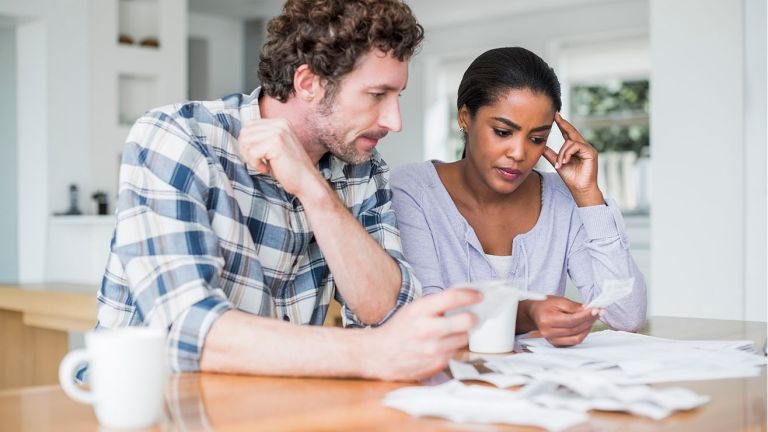
Cost of living help and support
If you’re worried about your money because of the cost of living crisis, we’re here to help.
Our practical guidance can help you tackle money worries, improve financial habits and find the support you need.

Your finances and mental wellbeing
We explain how to recognise the signs of problems with mental health, how to keep on top of your finances, and where you can go for help.
Just as with physical health, everyone has ‘mental health.’ And just like physical health, how mentally healthy we are influences how we think and feel about ourselves and others, and how we understand everything around us. It affects how well we manage the day-to-day activities in our lives, including making decisions about finances and managing our money.
Problems in mental health can be caused by lots of things, and can affect anyone. People with other disabilities or lasting health conditions may also have problems with their mental health because of the stress this can cause.
Concerns about money can also have an impact. The Money and Mental Health Policy Institute says that 24% of adults with mental health issues also have a problem with debt. This can then be particularly hard, as owing money can worsen already poor mental health.
If you’re worried about your money because of the cost of living crisis, we’re here to help.
Our practical guidance can help you tackle money worries, improve financial habits and find the support you need.
Many of us have mental health problems. How many could be surprising. And the way people think and talk about mental health is getting better. One of the reasons for this is how many people it affects. One in four British adults could have a mental health problem.
Some of us are already aware of our mental health problems, but issues can sometimes start without us noticing. Here are some ways to tell that your mental health could be suffering. It’s important to be able to notice them, and don’t ignore them if they start happening.
For more signs, the NHS website has a quiz that uses questions GPs ask to find out if someone is feeling anxious or depressed.
If you’re worried about your mental health, you can see your family doctor or GP about it. They should be able to give you advice about treatment, and may refer you to another local professional who may be able to help. There are also companies that have volunteers who can offer advice or listen to you.
Discover information and advice about your own mental health, and see how you can support someone who’s finding their mental health challenging.
We explain what you can do when you’re struggling with your mental health and where you can go for support. You’ll also find tips on managing your mental health in the workplace.
Advice, tips and tools to help you make the best choices for your health and wellbeing.
Get free, impartial information and tools on how to manage your money.
You may not want to tell us, or whoever you bank with, about any mental health problems and, of course, that’s totally fine. We’re not here to give medical advice and won’t try to do so.
If you do choose to tell us, we can work with you to see what we can do to help you. We could change how we contact you and how often, show you where to get help and advice, or just make some changes to make you feel comfortable when talking to us.
We’ll always let you know what we will do with any information you give us about your health. We will only use it to help you. Of course, we’ll keep anything you say to us confidential.
If you bank with Barclays also there may be other support we can provide
Mental health problems often only last a short amount of time. They can also go away and then come back. You may choose to have someone else manage your accounts during these times, while still doing it yourself when you feel in a position to.
1. You must be 16 or over and have a Barclays current account to use the Barclays app. Terms and conditions apply.